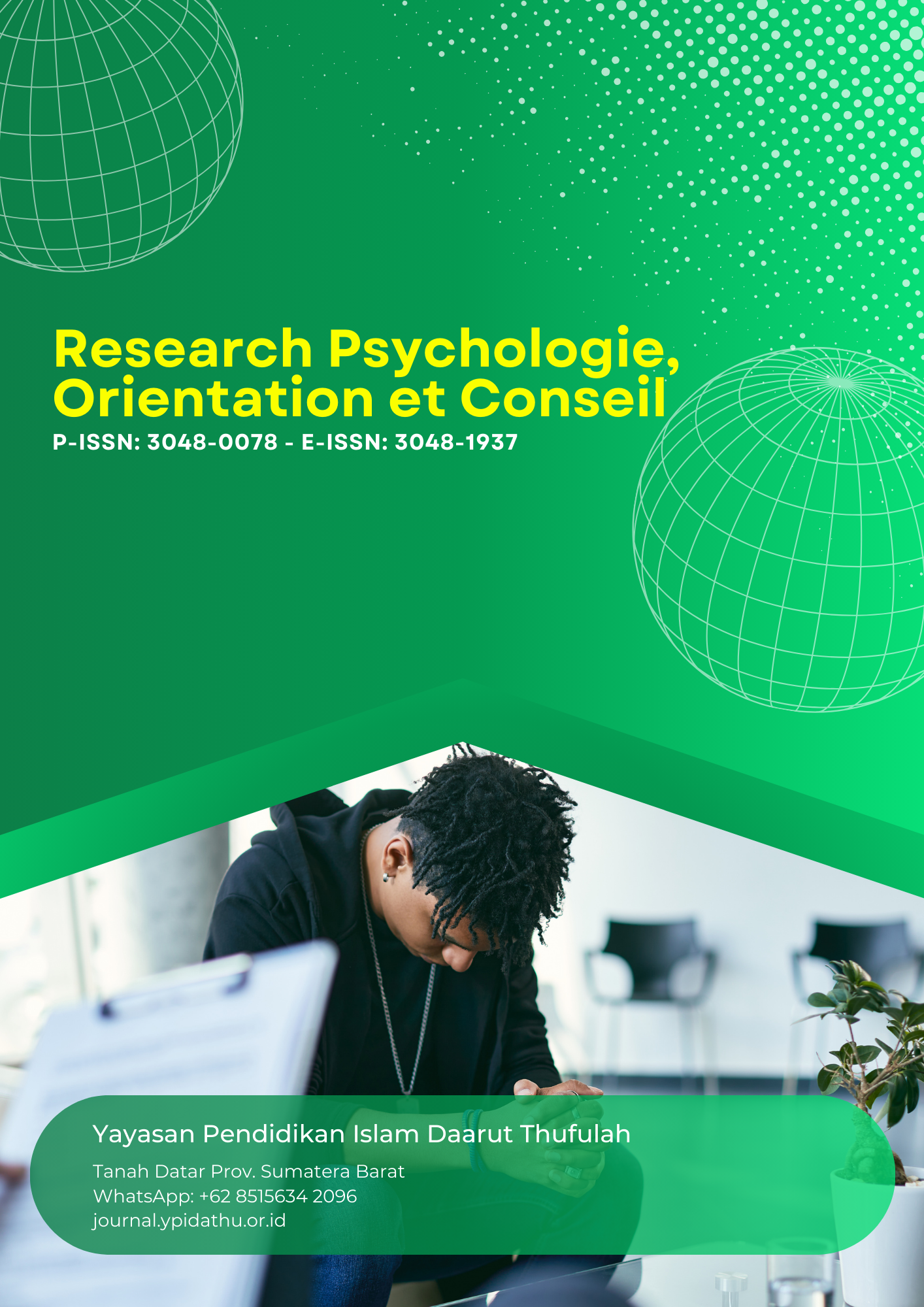The Impact of Social Media on Social Comparison and Self-Esteem
Abstract
The ubiquitous presence of social media platforms has created an environment where individuals are constantly exposed to curated, idealized self-presentations. This environment is thought to intensify the natural human tendency for social comparison, which has significant implications for psychological well-being, particularly self-esteem. This study aimed to investigate the relationship between the intensity of social media use, the tendency for social comparison, and levels of self-esteem among young adults. A cross-sectional survey was conducted with a sample of 350 university students (aged 18-24). Participants completed validated instruments, including the Social Media Intensity Scale, the Iowa-Netherlands Comparison Orientation Measure (INCOM), and the Rosenberg Self-Esteem Scale. Correlation and mediation analyses were performed to test the hypothesized relationships. A significant positive correlation was found between the intensity of social media use and social comparison orientation (r = .45, p < .001). In turn, social comparison orientation was significantly negatively correlated with self-esteem (r = -.52, p < .001). Mediation analysis confirmed that social comparison significantly mediated the relationship between social media intensity and lower self-esteem. Intensive engagement with social media is strongly associated with a greater tendency for social comparison, which in turn predicts lower self-esteem. These findings highlight social comparison as a key psychological mechanism through which social media use may negatively impact mental health.
Full text article
References
Arendt, B., & Reershemius, G. (2025). Digital writing in Low German: Between elite and grassroot literacies. Journal of Multilingual and Multicultural Development, 46(3), 540–552. Scopus. https://doi.org/10.1080/01434632.2024.2354351
Armah, A. K., Li, J., & Wei, M. (2025). Effect of infrastructure and technological factors on slum online commerce and product delivery: A structural functionalism perspective. Journal of Retailing and Consumer Services, 85. Scopus. https://doi.org/10.1016/j.jretconser.2025.104292
Byron Tuazon, J., & Renee Ching, M. (2025). Exploring Digital Banking and Financial Services Inclusivity: A Study of Social Media Interactions in an Online Community. Data and Metadata, 4. Scopus. https://doi.org/10.56294/DM2025575
Cárdenas Curiel, L., Marciano, J. E., Watson, V. W. M., Watson, C. F. M., & Ontiveros, A. L. (2025). “Can I Come to Your Island?”: (Game)Playing Embodied Digital Literacies with Cuentos, Pláticas, and Cousins. Reading Research Quarterly, 60(2). Scopus. https://doi.org/10.1002/rrq.615
Chooset, N., & Sukhabot, S. (2025). Developing entrepreneurial marketing dimensions for SMEs in the digital era: A grounded theory approach. Cogent Business and Management, 12(1). Scopus. https://doi.org/10.1080/23311975.2025.2480748
Egas, P. B., & Toasa, R. M. (2025). Dynamic Education with Social Media. In Carvalho J.V., Abreu A., Ferreira da Costa E., Vázquez-Justo E., & Viguera Figueroa H. (Eds.), Lect. Notes Networks Syst.: Vol. 858 LNNS (pp. 412–420). Springer Science and Business Media Deutschland GmbH; Scopus. https://doi.org/10.1007/978-3-031-74751-9_38
Flynn, S. (2025). Keeping up with the times in Ireland: Older adults bridging the age-based digital divide together? Studies in the Education of Adults, 57(1), 156–174. Scopus. https://doi.org/10.1080/02660830.2023.2298388
Hassoun, A., Beacock, I., Carmody, T., Kelley, P. G., Goldberg, B., Kumar, D., Murray, L., Park, R. S., Sarmadi, B., & Consolvo, S. (2025). Beyond Digital Literacy: Building Youth Digital Resilience Through Existing “Information Sensibility” Practices. Social Sciences, 14(4). Scopus. https://doi.org/10.3390/socsci14040230
Hutchinson, J., Clement, D. Y., Gheorghe, R. M., Kellum, L., & Shuttleworth, A. (2025). “I’m Not Super Familiar with Children’s Ecosystems Online”: Expert Assessments on the Effects of Early Childhood Exposure to Extremism Online. Perspectives on Terrorism, 19(1), 64–90. Scopus. https://doi.org/10.19165/2025.5669
Kankanamge, K. S. I., Chowdhury, A., Kabir, K. H., & Khan, N. A. (2025). Evils of knowledge sharing and learning: The case of agri-food misinformation in virtual communities of practices in Sri Lanka. Data and Information Management. Scopus. https://doi.org/10.1016/j.dim.2024.100090
Michalak, R., & Ellixson, D. (2025). Addressing Language and Ableism in Information Technology: A Call to Action for Academic Librarians. Journal of Library Administration, 65(1), 100–131. Scopus. https://doi.org/10.1080/01930826.2024.2432225
Pitchan, M. A., Salman, A., & Arib, N. M. (2025). A Systematic Literature Review on Online Scams: Insights into Digital Literacy, Technological Innovations, and Victimology. Jurnal Komunikasi: Malaysian Journal of Communication, 41(1), 107–124. Scopus. https://doi.org/10.17576/JKMJC-2025-4101-07
Pontillas, M. S. (2025). Learning in a Borderless Classroom: A Phenomenological Study of Learning During Education Disruption. International Journal of Learning, Teaching and Educational Research, 24(3), 149–165. Scopus. https://doi.org/10.26803/ijlter.24.3.8
Salerno, A., Calvin, A., Jenkins, M., & Moreno, M. A. (2025). Adolescent Experiences With Navigating Health Information on Social Media and Beyond: Using Qualitative Data to Inform a Model. Journal of Adolescent Health. Scopus. https://doi.org/10.1016/j.jadohealth.2025.02.016
Sehgal, N. J., Jackson, D. N., Herlihy, C., Dickerson, J., & Baur, C. (2025). Advancing African American and hispanic health literacy with a bilingual, personalized, prevention smartphone application. Health Informatics Journal, 31(1). Scopus. https://doi.org/10.1177/14604582251315604
Sonne Vyas, L. (2025). Digital revolution and the gender divide: Factors affecting mobile phone use in India. Information Communication and Society, 28(3), 471–491. Scopus. https://doi.org/10.1080/1369118X.2024.2420034
Sridhar, S., & King, C. (2025). Impact of social media on patient expectations and decision-making in gynecology. Current Opinion in Obstetrics and Gynecology. Scopus. https://doi.org/10.1097/GCO.0000000000001030
Subasinghe, A. K., Wilkie, J., Puls, R., Tuffrey, T., & Boyle, J. A. (2025). Consumer-Led Codesign of an Effective Online Consumer and Community Involvement Audit Tool. Health Expectations, 28(2). Scopus. https://doi.org/10.1111/hex.70249
Verma, P. K., Trivedi, S. K., & Biswas, S. (2025). Exploring trends and gaps in sustainable e-library research: A text mining analysis. Digital Library Perspectives, 41(2), 311–345. Scopus. https://doi.org/10.1108/DLP-07-2024-0110
Ward, L., Bissell, L., Howsam, J., Tew, G. A., Wiley, L., Rose, F., Sofía, C., Palacios, M., & Rapley, T. (2025). Acceptability and feasibility of online delivery of chair-based yoga for older adults with multimorbidity – lessons from a process evaluation of the gentle years yoga trial. BMC Complementary Medicine and Therapies, 25(1). Scopus. https://doi.org/10.1186/s12906-025-04838-6
Ying, H., Jingwen, P., & Mengyu, L. (2025). Construction and Application of Digital Platforms, Resources, and Tools: Digital Platforms. In Lect. Notes Educ. Technol.: Vol. Part F86 (pp. 411–425). Springer Science and Business Media Deutschland GmbH; Scopus. https://doi.org/10.1007/978-981-97-8148-5_45





